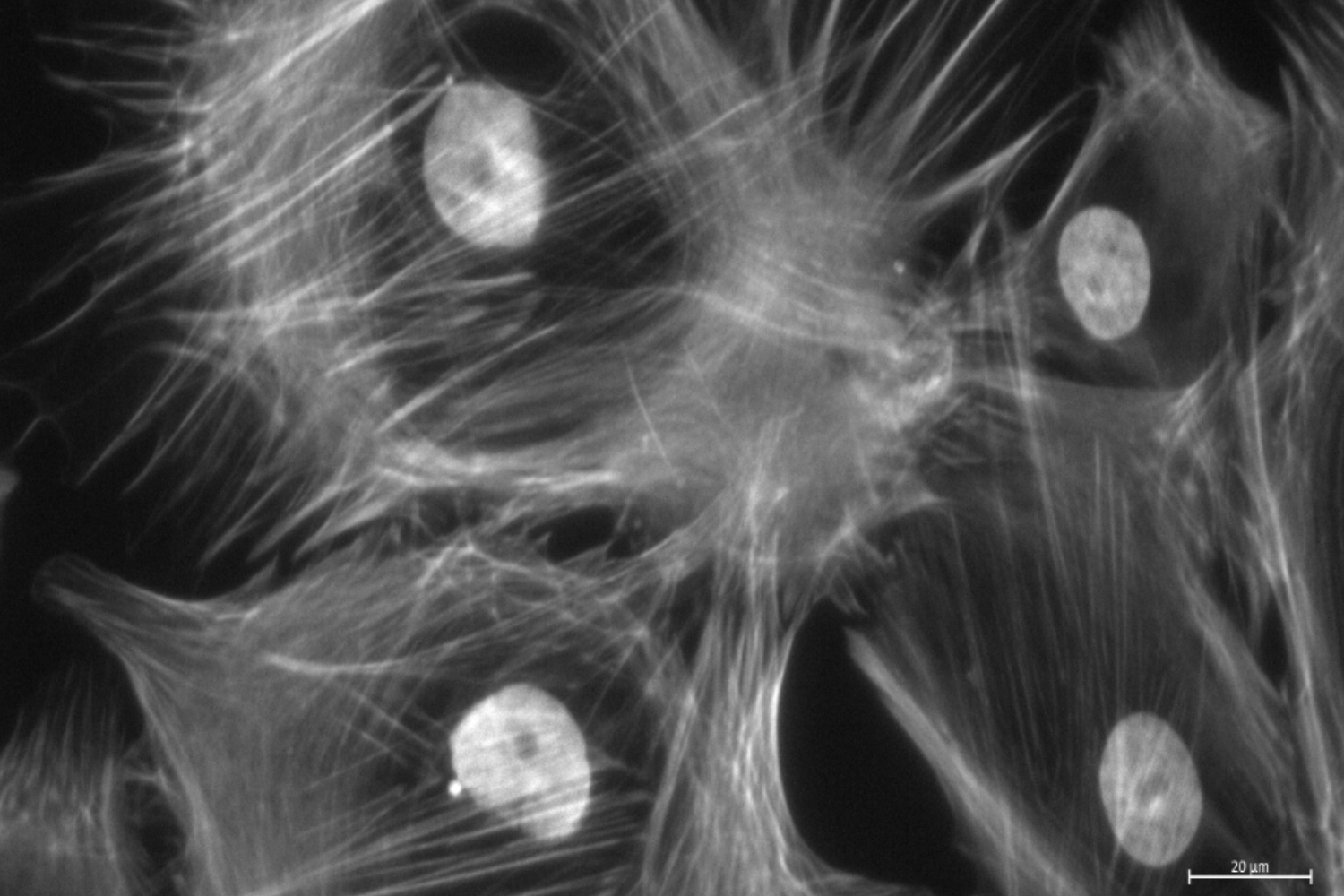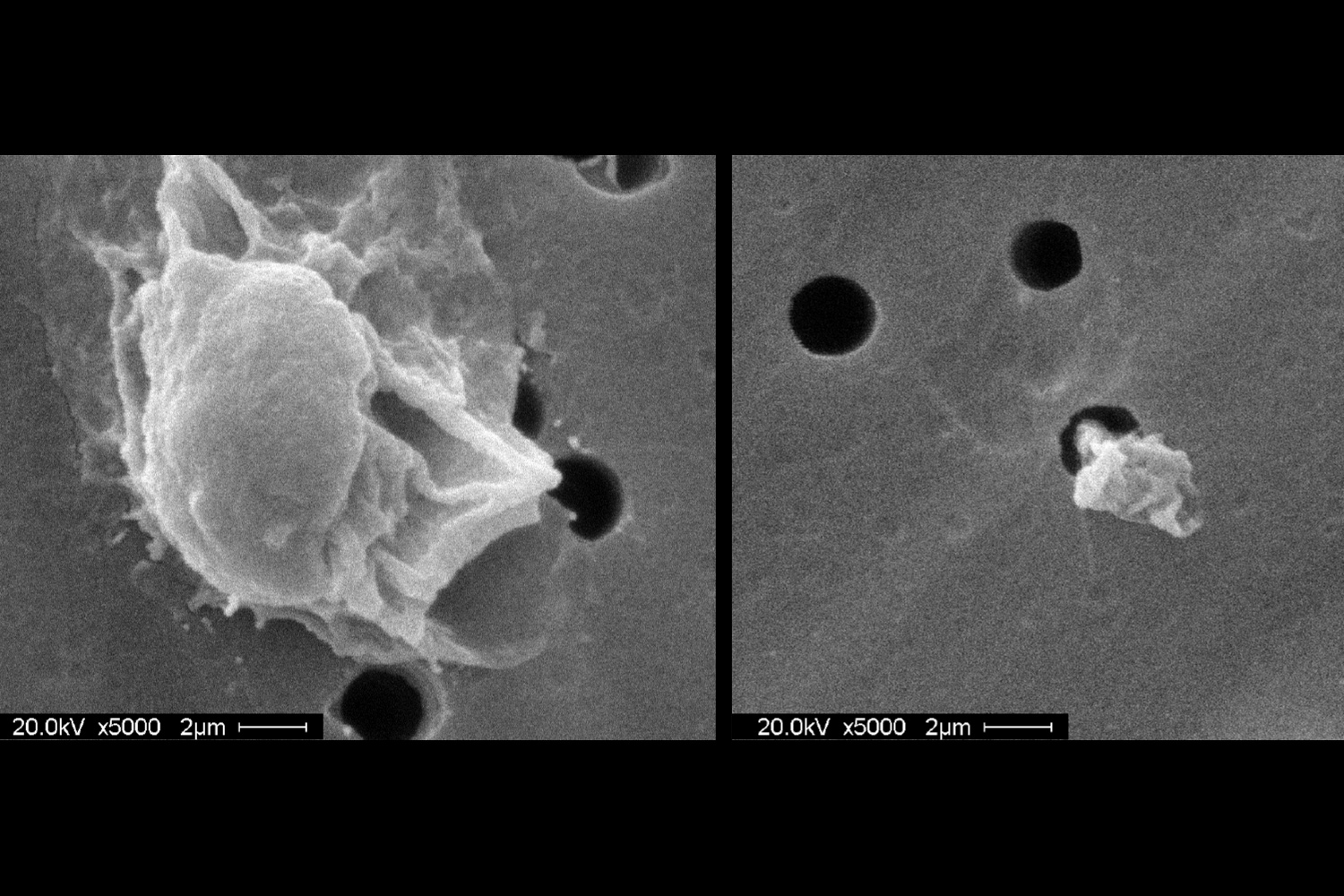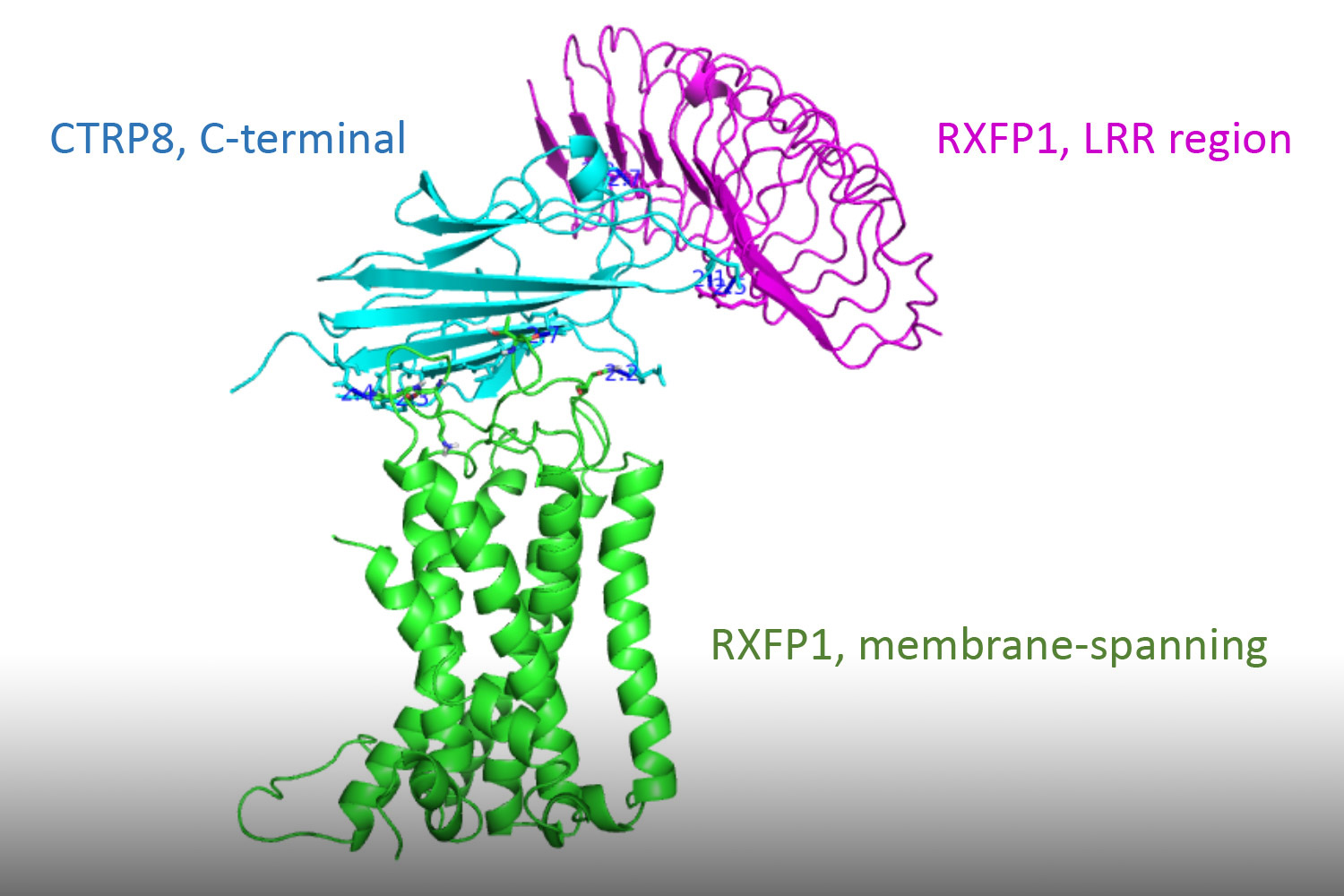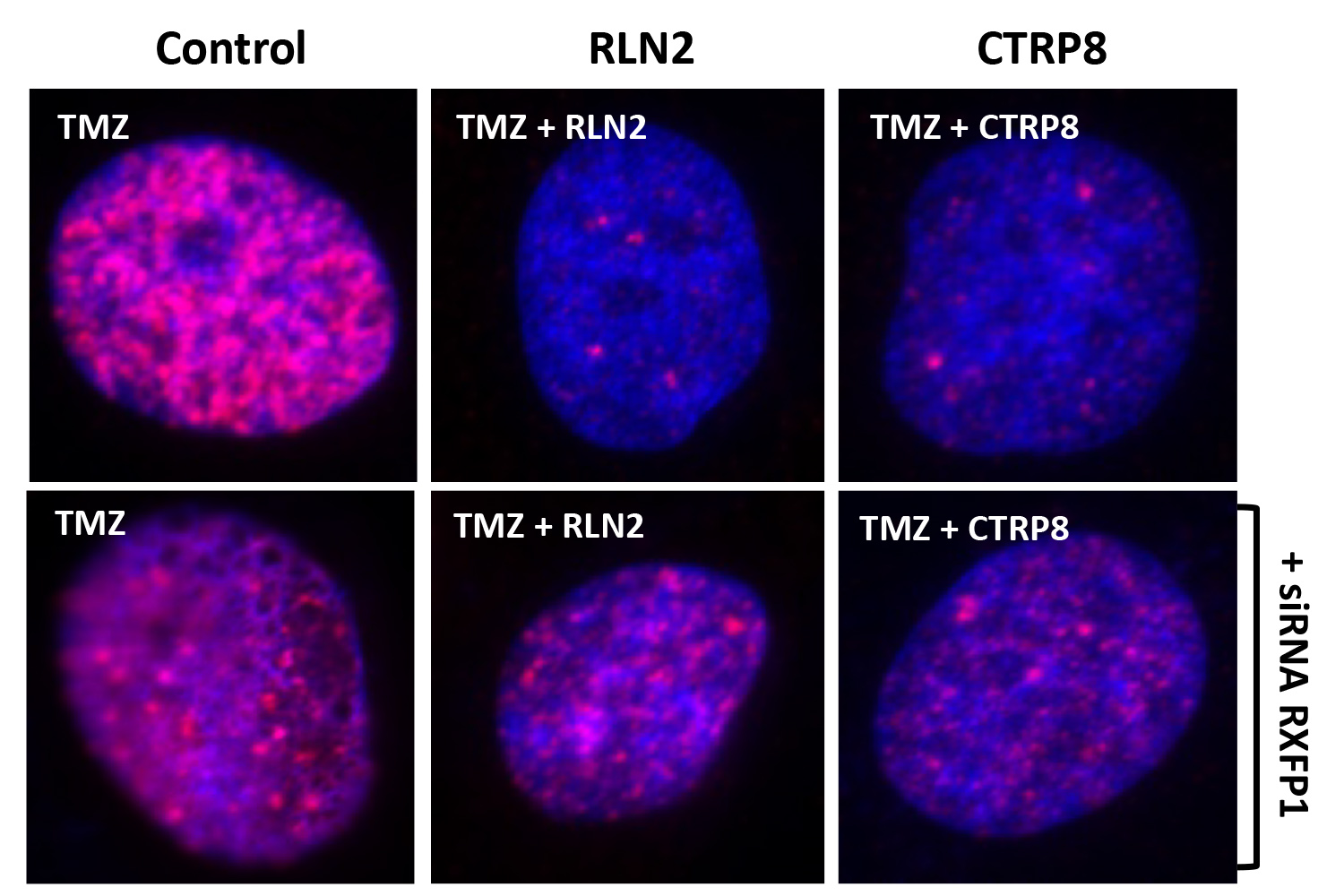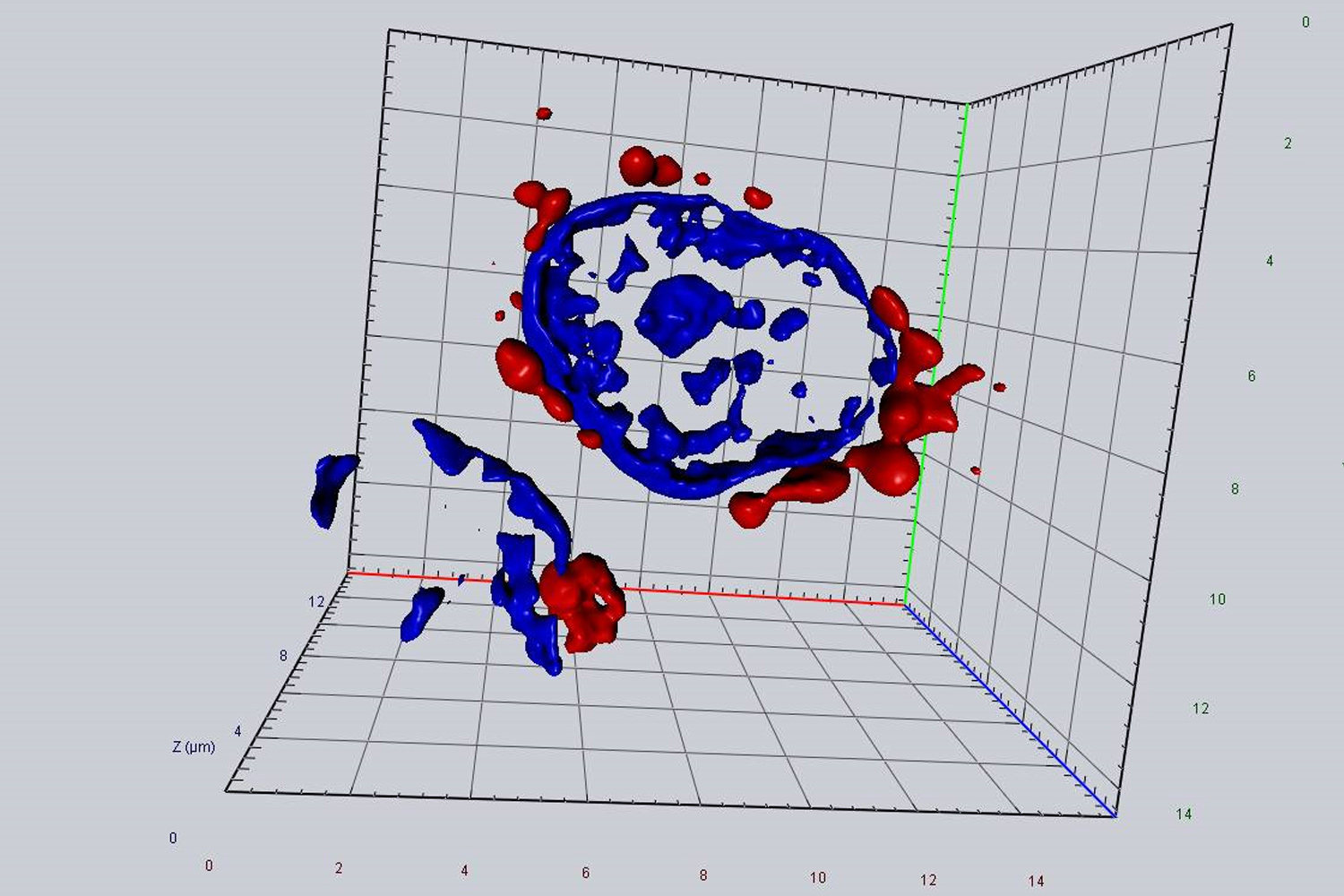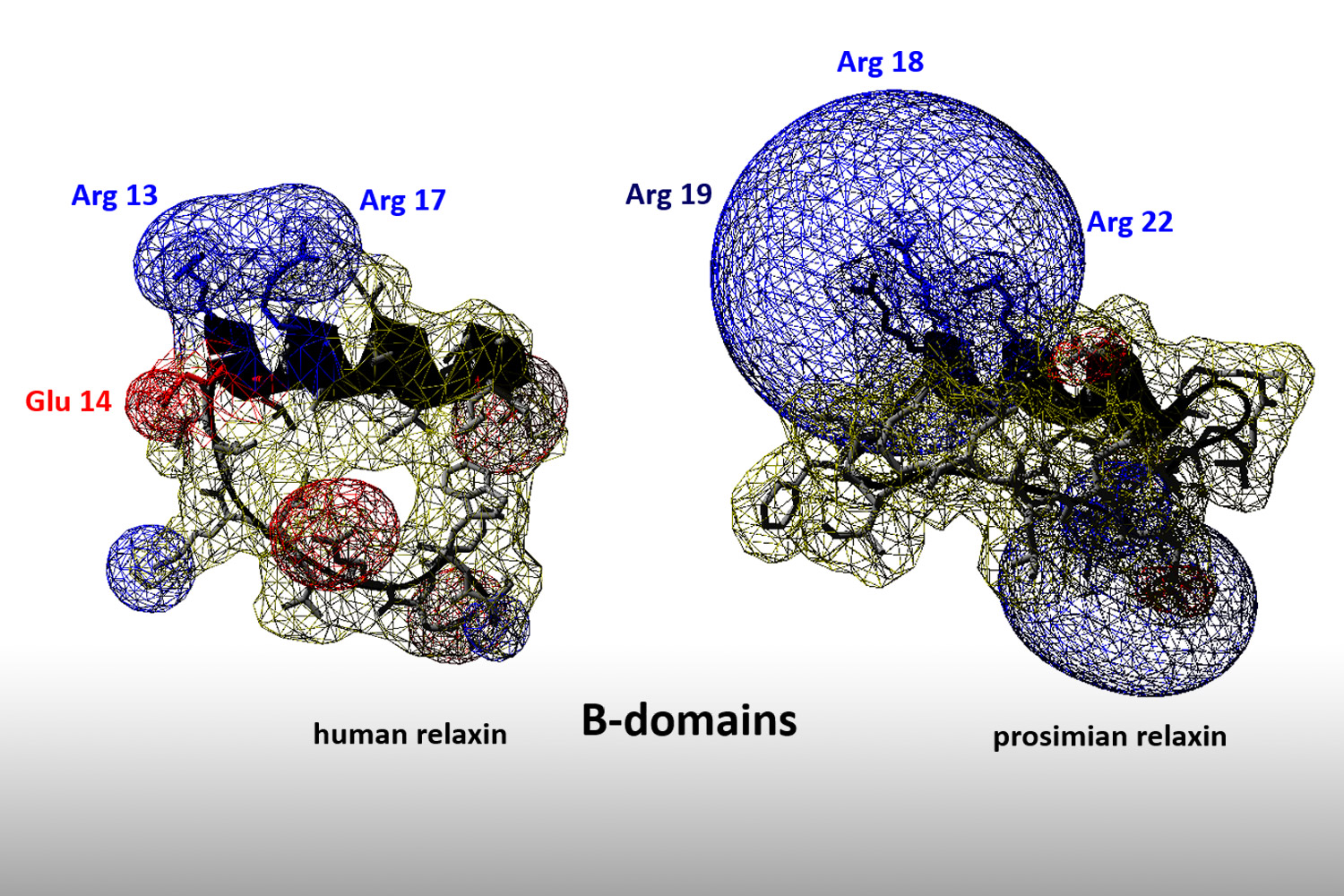RELAXIN RECEPTORS AND LIGANDS IN CANCER
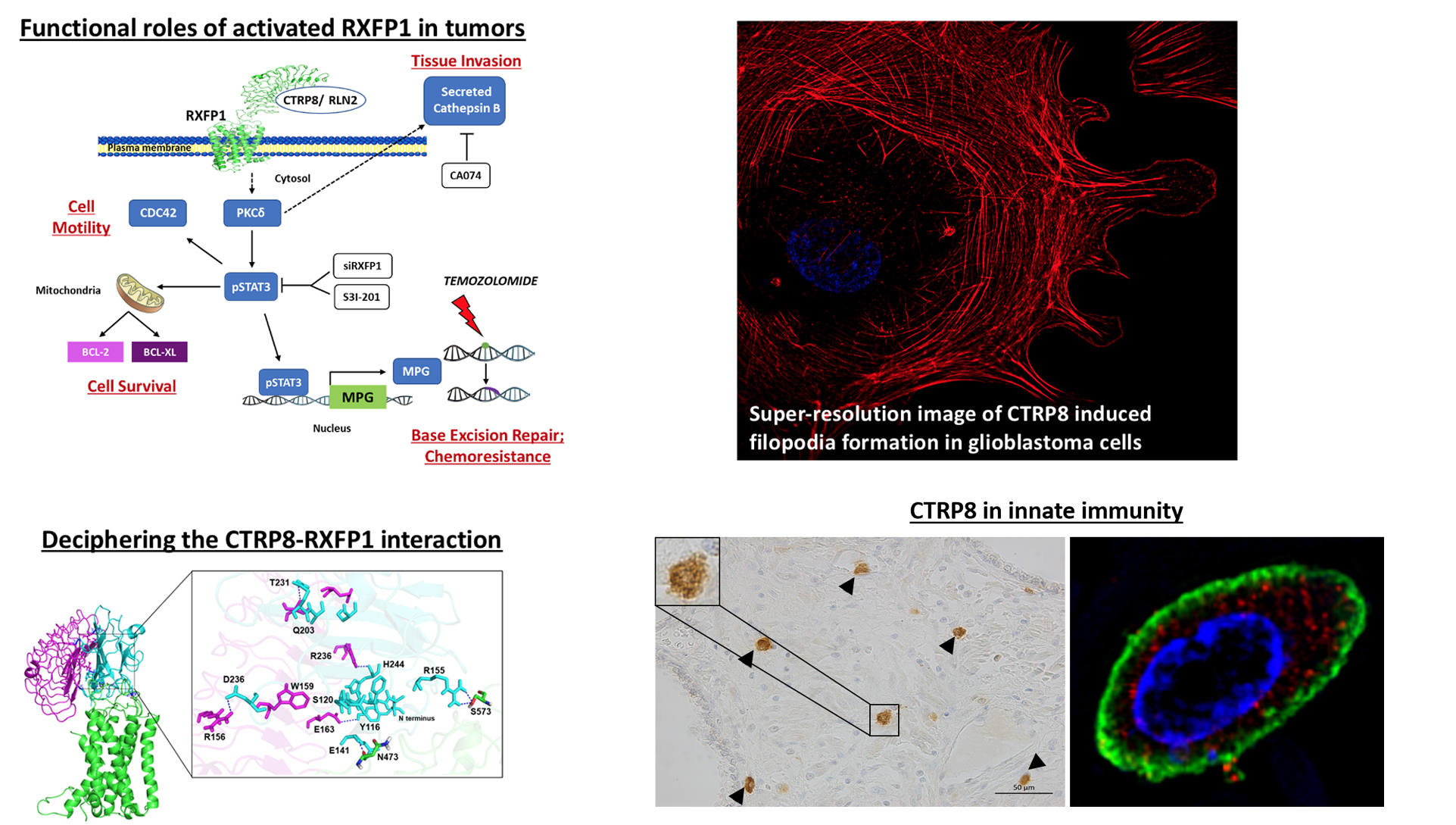
Relaxin and the relaxin-like factors are members of the insulin-like superfamily and bind to special G protein coupled receptors, called relaxin/insulin-like family peptide receptors of the RXFP family.
We demonstrated in tumors that this ligand-receptor system enhances tumor cell migration and tissue invasion. We were the first to identify a new class of peptide ligands of the RXFP1 in human glioblastoma (GBM) brain tumor. CTRP8 (C1Q/TNF-related peptide 8) is the least known CTRP member and, like relaxin, activates RXFP1 intracellular signaling. CTRP8 promotes tumor cell motility and secretion of powerful tissue-degrading cathepsin enzymes. Intriguingly, CTRP8 also increases the chemoresistance of patient GBM cells by modulating the base excision DNA repair pathway. Recently, we identified CTRP8 as a novel marker of innate immune cells and have started to explore the role of this RXFP1 ligand for innate immunity in the context of prostate, breast, and brain tumors.
MAJOR TOPICS WE ARE CURRENTLY WORKING ON INCLUDE:
We were the first to identify C1Q Tumor Necrosis Factor-related Peptide 8 (CTRP8) as a new ligand of the relaxin receptor RXFP1 in brain tumors. We are exploring the exciting new biology of CTRP8 signaling in patient-derived glioblastoma (stem) cells and breast-to-brain metastases using various in-vitro strategies and brain xenograft mouse models.
Our goal is to identify RXFP1 dependent signaling networks and study their effect on cell functions. Both RXFP1 agonists, relaxin and CTRP8, utilize the RXFP1 relaxin receptor to promote cell motility, survival, DNA repair, and drug resistance in brain tumors. We are discovering the underlying signaling processes that define activated RXFP1 as a guardian of cell survival.
We have discovered that CTRP8, like relaxin, is expressed in innate immune cells of normal and diseased human tissues. This thrilling research discovery marks an emerging new connection between the relaxin receptor RXFP1, the CTRP system and innate immune responses, placing the RXFP1-CTRP8 system at the front lines of immune modulation of cancer.

